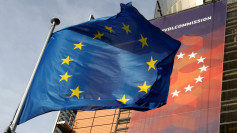Without doubt, 2020 is the worst year so far this century for most Americans due to the economic ravages wrought by the untamed COVID-19 pandemic. Joblessness, poverty and depression are rampant in the U.S. for the same reason.
It's no surprise Americans now see their lives as more miserable than ever before. The result of a recent survey shows Americans are at their unhappiest today than they've been over the past 48 years.
NORC at the University of Chicago is conducting the "COVID Response Tracking Study" to understand the beliefs, mental health and outlook among Americans before, during and after the pandemic. This nationally representative longitudinal study is being funded by the National Science Foundation (NSF).
The tracking study compares current beliefs to Americans' responses to previous national tragedies, as well as nearly 50 years of prior data collected in the General Social Survey.
Results from the COVID Response Tracking Study shows just 14% of American adults say they're very happy now compared to the 31% that said the same in 2018. It also shows 50% of respondents say they often or sometimes felt isolated in recent weeks compared to 23% in 2018.
The new survey was conducted before the George Floyd protests against police brutality erupted on May 26. It draws on research from the General Social Survey, which has collected data on American attitudes and behaviors at least every other year since 1972. Historically, no less than 29% of Americans have ever called themselves very happy in that survey.
The poll shows Americans are less optimistic today about the standard of living improving for the next generation than it's been over the past 25 years. Only 42% of Americans believe the standard of living of their children will be better than theirs when their kids reach their age. This reply compares very unfavorably to the 57% that held this belief in 2018. The all-time low was 45% in 1994.
Twice as many Americans report being lonely today compared to 2018. This result isn't at all surprising given the months-long stay-at-home orders imposed by states to contain the spread of the coronavirus. The survey also reports a drop in satisfaction with social activities and relationships.
Compared to 2018, Americans are about twice as likely to say they sometimes or often have felt a lack of companionship (45% vs. 27%) and felt left out (37% vs. 18%) over the past four weeks.
Louise Hawkley, a senior research scientist with NORC at the University of Chicago, said one of the most surprising findings is loneliness isn't more prevalent than it should be given the pervasive isolation.






